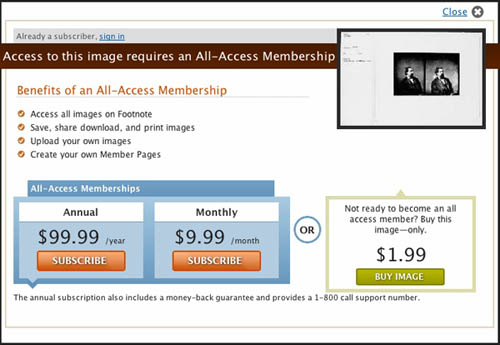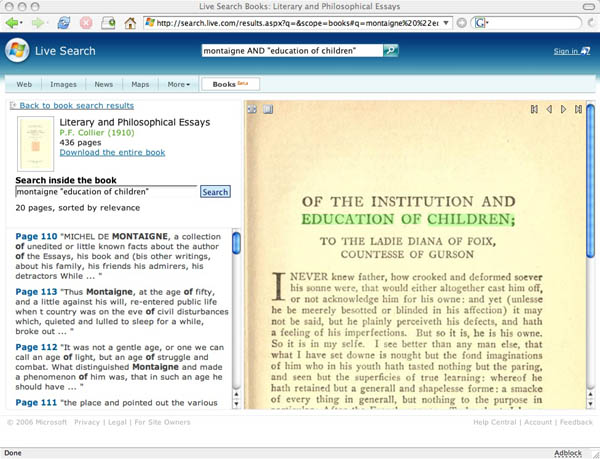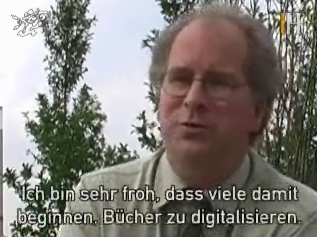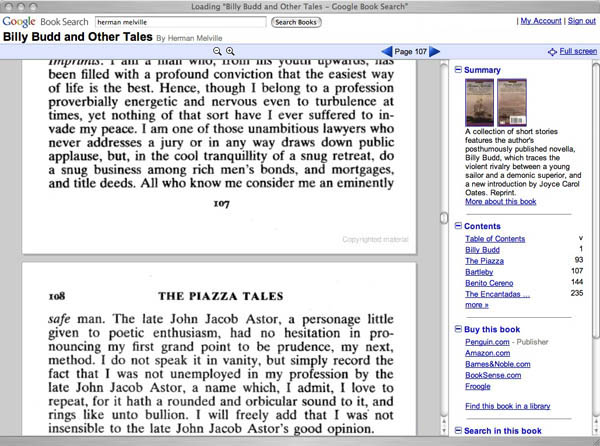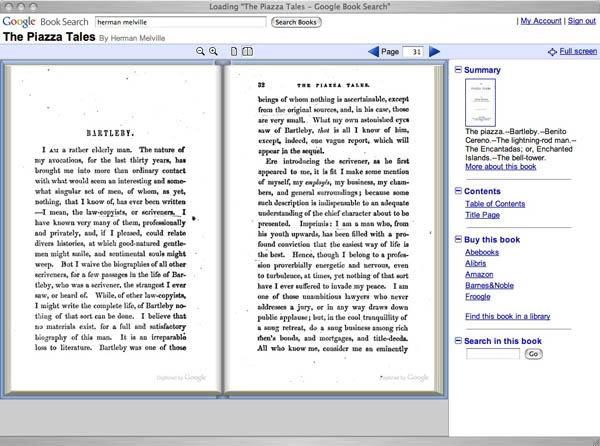Two major preservation and access initiatives just reported by Peter Brantley over at O’Reilly Radar (1 and 2):
1. Reframe (set to launch in September ’07)
The Reframe project is a new initiative of Renew Media in partnership with Amazon and with major support from the John D. & Catherine T. MacArthur Foundation, which promises to offer exciting solutions for the dissemination of important media arts and the preservation and accessibility of our visual heritage.
The Reframe project will help connect audiences of independent media to a robust collection of media arts via an integrated, resourceful website. Reframe will aggregate content from individual filmmakers, broadcasters, distributors, public media resources, archives, libraries and other sources of independent and alternative media. Serving as a both an aggregator of content and a powerful marketing tool, Reframe enables content-holders to digitize, disseminate and make available their content to a vast potential audience via a powerful online resource.
Renew Media will create a specialized Reframe website, which will interact with the Amazon storefront, to assist institutions (universities, libraries or museums) and consumers of niche content in browsing, finding, purchasing or renting Reframe content. Reframe website visitors will find it easy to locate relevant content through a rich menu of search and retrieval tools, including conventional search, recommender systems, social networking tools and curated lists. Reframe will allow individual viewers to rate and discuss the films they have seen and to sort titles according to their popularity among users with similar interests.
2. Library of Congress awards to preserve digitized and born-digital works
The Library of Congress, through its National Digital Information Infrastructure and Preservation Program (NDIIPP), today announced eight partnerships as part of its new Preserving Creative America initiative to address the long-term preservation of creative content in digital form. These partners will target preservation issues across a broad range of creative works, including digital photographs, cartoons, motion pictures, sound recordings and even video games. The work will be conducted by a combination of industry trade associations, private sector companies and nonprofits, as well as cultural heritage institutions.
Several of the projects will involve developing standardized approaches to content formats and metadata (the information that makes electronic content discoverable by search engines), which are expected to increase greatly the chances that the digital content of today will survive to become America’s cultural patrimony tomorrow. Although many of the creative content industries have begun to look seriously at what will be needed to sustain digital content over time, the $2.15 million being awarded to the Preserving Creative America projects will provide added impetus for collaborations within and across industries, as well as with libraries and archives.
Partners include the Academy of Motion Picture Arts and Sciences, the American Society of Media Photographers, ARTstor and others. Go here and scroll down part way to see the full list.
One project that caught my and Peter’s eye is an effort by the University of Illinois at Urbana-Champaign to address a particularly vexing problem: how to preserve virtual environments and other complex interactive media:
Interactive media are highly complex and at high risk for loss as technologies rapidly become obsolete. The Preserving Virtual Worlds project will explore methods for preserving digital games and interactive fiction. Major activities will include developing basic standards for metadata and content representation and conducting a series of archiving case studies for early video games, electronic literature and Second Life, an interactive multiplayer game. Second Life content participants include Life to the Second Power, Democracy Island and the International Spaceflight Museum. Partners: University of Maryland, Stanford University, Rochester Institute of Technology and Linden Lab.

